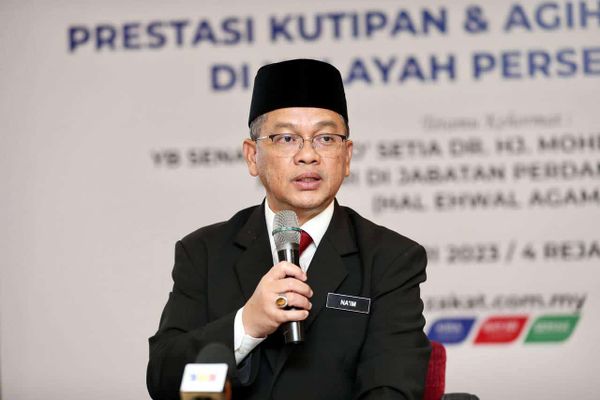PUTRAJAYA, Oct 2 — Minister in the Prime Minister’s Department (Religious Affairs) Datuk Mohd Na’im Mokhtar has reminded all agencies and charitable institutions in Malaysia not to betray the trust placed in them by their benefactors.
He said the misappropriation of donated funds and lack of transparency in fund management will result in the public losing their trust towards institutions collecting donations, leading to their disinterest in contributing.
“Efficient governance not only will create competitive charitable organisations but also gain and maintain the community’s confidence to continue contributing and making the institutions their preferred choice in making infaq (voluntary spending).
“I urge all agencies and charitable institutions to ensure good administration and governance are conducted stringently… Don’t ever betray the trust of these benefactors,” he said.
He spoke to reporters after attending the closing ceremony of the YaPEIM Regional Forum 2024 here today.
Earlier in his speech, Na’im reminded all agencies and charitable institutions to follow syariah principles that encourage ethical investment and socially responsible economic growth.
He said the infaq sector plays a vital role in empowering the Islamic economy in Malaysia, by addressing short- and long-term socio-economic challenges.
“Infaq and sedekah (acts of charity) can act as a social security net in addition to assisting those facing financial difficulties.
“This is crucial in tackling economic shocks such as losing one’s job, illness, or natural disasters. A network of integrity-driven and strong charitable institutions can help individuals from falling into poverty,” he added.
Na’im said the two-day forum successfully formulated strategies and initiatives to advance the development of the Islamic economy and finance and encourage sustainable and inclusive growth.
“I hope all outcomes and key insights of this forum are well-documented and shared with various stakeholders for further action towards the development of Malaysia and the advancement of ummah at the regional level,” he said.
The forum approved 12 resolutions through various discussion sessions, including the need to formulate economic and financial policies based on the Islamic economy, empowerment of regional strategic cooperation involving stakeholders of various levels, improvement of digital technology in the Islamic economy and proposals for amendments to several acts to enhance governance in the infaq sector.
— Bernama




